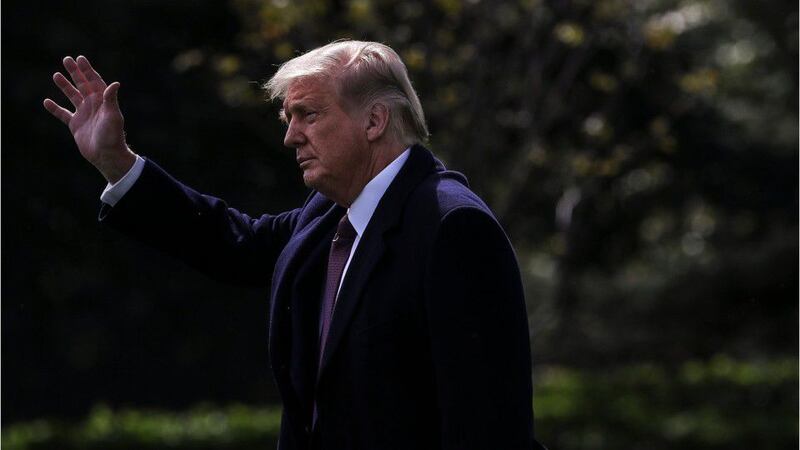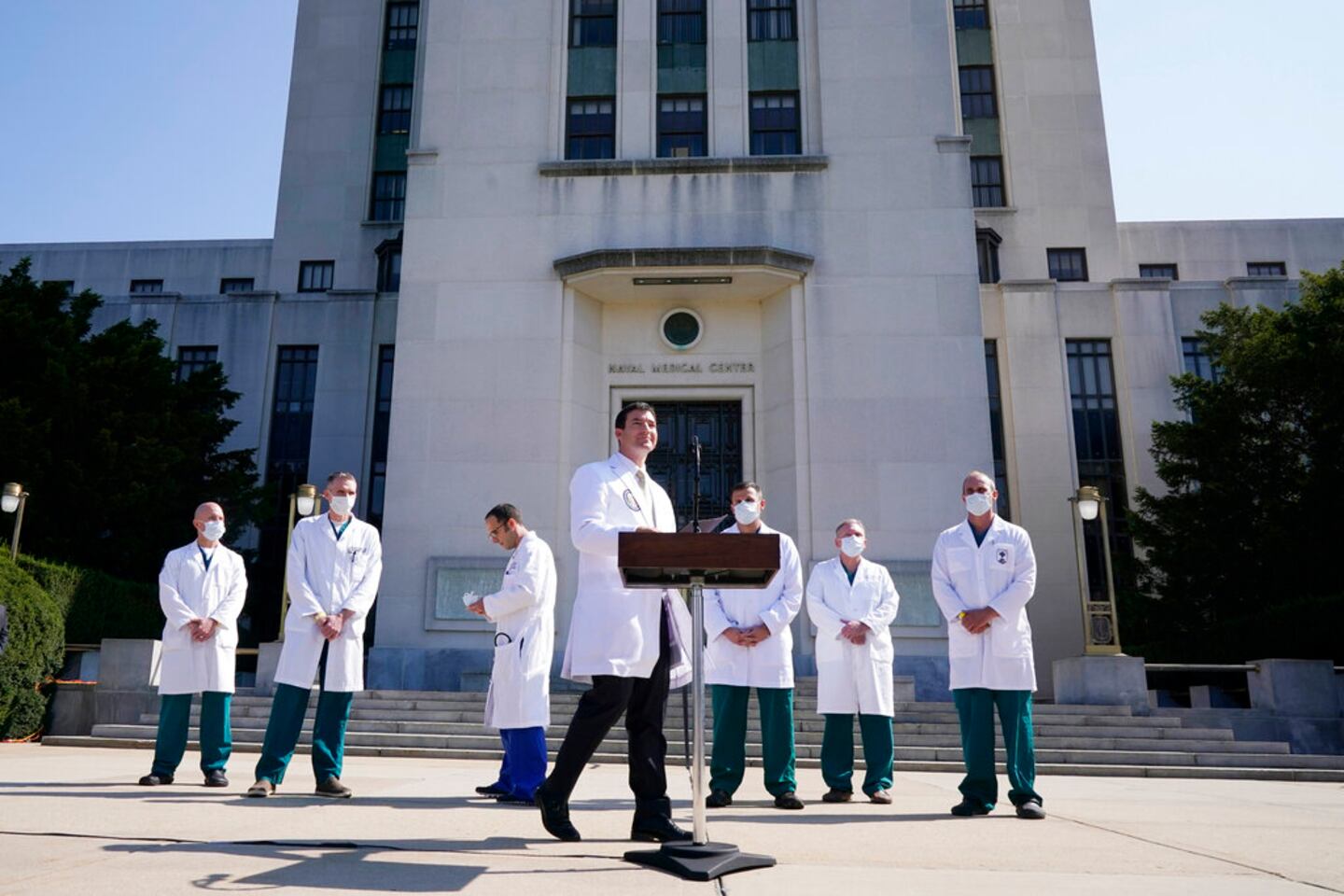President Donald Trump’s physicians are using several medications – including an experimental drug and an over-the-counter heartburn medication -- on the 74-year-old in an effort to relieve the symptoms of Covid-19 and hopefully shorten the course of his illness.
Dr. Sean Conley, the president’s physician, said Sunday that Trump was given a steroid called dexamethasone after his blood oxygen level had dropped twice in two days, but he “has continued to improve” since then. The president is also receiving a vitamin and aspirin.
Conley also revealed the other drugs Trump is being treated with. Here is a look at those medications:
Dexamethasone – a steroid
Dexamethasone has been shown to reduce deaths in patients who are the sickest from the infection.
Steroids suppress the immune system, something that has been shown to help those with severe COVID-19 cases. The drug works to calm the immune response to the virus, helping some whose immune response goes into overdrive, causing other sometimes fatal responses.
Some doctors who are not treating the president have questioned the use of the steroid on a patient who is said not to be suffering from severe symptoms of the virus.
Dr. Eric Topol, director and founder of the Scripps Research Translational Institute in La Jolla, California, told USA Today that he did not understand why Trump was given the steroid this early into his treatment if he does not have a severe case of the infection.
“(My) main concern is the suppression of the immune response he needed,” Topol added via email, “and throwing in unnecessary, and experimental drugs and unknown interactions.”
REGN-COV2 – a combination of two monoclonal antibodies
Trump was given REGN-COV2, a combination of two drugs that are monoclonal antibodies, or antibodies produced in a laboratory that boost a patient’s immune response.
According to his doctors, Trump received an 8-gram dose of a drug that is produced by the pharmaceutical company Regeneron.
The drug is still considered experimental. It is being tested in clinical trials.
A monoclonal antibody attacks a specific virus – in this case, the COVID-19 virus – and pumps up the body’s immune response.
REGN-COV2 is showing promise as it reduces the “viral load” or the amount of virus a patient has in his body.
Former Food and Drug Administration commissioner Dr. Scott Gottlieb told CNBC that the decision to give Trump the experimental antibody combination was a sound one.
“This was a wholly appropriate decision to give him active therapy, and then it just became a choice of which therapy,” Gottlieb said on “Fast Money” on CNBC before Trump was taken to Walter Reed Medical Center.
Remdesivir – an antiviral drug
The president was also given the drug remdesivir, a drug that was first developed to fight the Ebola virus. It is an antiviral drug, a drug that fights viruses. The drug has been shown to shorten hospital stays by several days, according to research by Gilead Sciences, the company that developed the drug.
The drug is given intravenously in a five-day course, according to the company.
“It’s not really a treatment in the sense that it’ll cure people,” Dr. Irwin Redlener, director of the Pandemic Resource and Response Initiative at Columbia University’s National Center for Disaster Preparedness, told MSNBC. “It will just hopefully reduce the fatality rate and reduce the course of the illness.”
Famotidine – an antacid that is sold under the name Pepcid
The drug famotidine has been studied for several months as a possible drug to use in COVID-19 treatment. The drug, a common one taken by thousands of people for heartburn, is generally safe and relatively inexpensive.
According to Science Magazine, The Feinstein Institutes for Medical Research, released a statement Friday citing evidence it was helpful for COVID-19. However, the statement also said, “We have yet to prove [famotidine’s] efficacy.” The institute says it’s “eagerly awaiting” FDA approval of a trial that will evaluate whether famotidine can help people who are not hospitalized.
Vitamin D – a vitamin
According to several studies, people who have low levels of vitamin D in their bodies have worse outcomes after they contract the COVID-19. It is not clear that adding vitamin D to a treatment course once a patient has been infected does any good.
It is better to make sure you are not deficient in vitamin D before you potentially get the virus.
Zinc – a mineral present in the human body
Data also suggests patients with low levels of zinc in their blood fare worse with COVID-19 than those with normal levels. But again, there is no evidence that supplementing with zinc improves COVID-19 outcomes.
Melatonin – a hormone that aids sleep
Melatonin is a hormone that your brain produces in response to darkness. Research has shown that melatonin may reduce inflammation in the body, something that has proved deadly in COVID-19 patients.
Aspirin – a pain reliever, fever reducer
Aspirin can be taken for many reasons. It is a pain reliever and fever reducer and a low-dose is taken daily by many who have had a stroke or heart attack since it thins the blood.
Trump has taken aspirin daily for at least the last four years.
What he has not been given
Hydroxychloroquine – a malaria drug
Trump has not been given hydroxychloroquine, a malaria drug that the president touted as a drug that showed promise in the fight against COVID-19. Several studies have shown the drug has little effect on the virus, while some anecdotal evidence showed patients benefiting from the drug.
According to Conley, Trump asked about the drug, but it has not been given to him.
Conley said Trump could be discharged from Walter Reed National Military Medical Center as early as Monday, The Associated Press reported.
Cox Media Group








